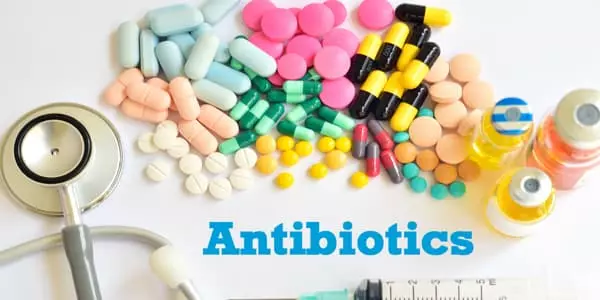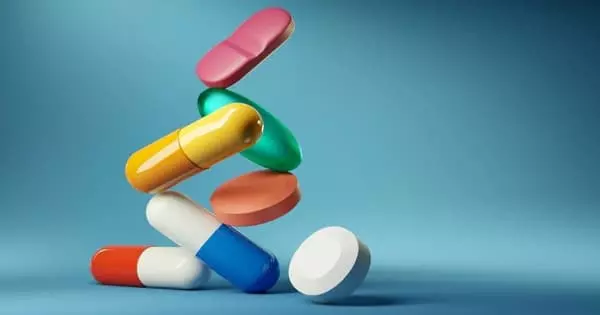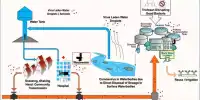The rapid emergence of antimicrobial resistance among bacteria is a major threat to both individual and societal health. Previous research has shown that infections with resistant bacteria increase morbidity and mortality while also significantly increasing the financial burden of medical care. The effectiveness of antibiotic treatment is determined by a number of factors, the most important of which are the antibiotic itself, the target pathogen, and the patient’s body system.
Antibiotics can now be made more effective against antibiotic-resistant bacteria, also known as ‘superbugs,’ according to researchers. A multidisciplinary project led by EMBL Australia researchers from Monash University and Harvard University has discovered a way to make antibiotics more effective against antibiotic-resistant bacteria, also known as ‘superbugs.’
According to the World Health Organization, antimicrobial resistance to superbugs is one of the top ten global public health threats confronting humanity. This new research will pave the way for clinicians to increase the effectiveness of antibiotics without resorting to risky strategies such as giving patients higher doses or relying on the discovery of new antibiotics.
We’ve been working on dual-function antibiotic-chemoattractant ‘hybrids,’ which improve neutrophil recruitment while increasing bacterial engulfment and killing. By stimulating our powerful immune system in this way with the immunotherapeutic antibiotic, we’ve shown in mouse models that the treatment is 2-fold more effective than just using the antibiotic alone at a one-fifth lower dose.
Associate Professor Max Cryle
During a bacterial infection, the body uses molecules called chemoattractants to attract neutrophils to the infection site. Neutrophils are immune cells that have the ability to encapsulate and kill dangerous bacteria, making them essential to the immune response. Researchers attached a chemoattractant to an antibiotic, allowing them to increase the recruitment of immune cells and improve their killing ability.
The findings have now been published in Nature Communications.
“There are two critical aspects to consider when examining how our immune system can fight bacteria. The first is our ability to entrap and kill bacterial cells. The second set of signals are the chemoattractants, which call for more neutrophils, which are white blood cells that lead the immune system’s response to infection” Dr. Jennifer Payne, the lead researcher from EMBL Australia and the Monash Biomedicine Discovery Institute, explained the findings.

The researchers studied golden staph infections, one of the more problematic antibiotic-resistant bacteria, and linked a chemoattractant known as formyl peptide to vancomycin, a commonly used antibiotic that binds to the surface of the bacteria.
“We’ve been working on dual-function antibiotic-chemoattractant ‘hybrids,’ which improve neutrophil recruitment while increasing bacterial engulfment and killing,” Dr Payne explained. “By stimulating our powerful immune system in this way with the immunotherapeutic antibiotic, we’ve shown in mouse models that the treatment is 2-fold more effective than just using the antibiotic alone at one-fifth lower dose,” said Associate Professor Max Cryle of the Monash Biomedicine Discovery Institute.
“This very promising new avenue of research is bringing a lot of potential benefits to the ever-increasing threat of drug-resistant superbugs,” said Associate Professor Cryle. Instrumental to the project was funding from VESKI and Melbourne sister city foundation that took Dr Payne across the world to Boston to learn and carry out microfluidic research learning and collaborating with Associate Professor Daniel Irima, and Dr Felix Ellett, Harvard experts in this field.
“Microfluidics was ground-breaking for this research, as it allowed us to generate an infection-on-a-chip to monitor the recruitment of human immune cells, and observe in real-time how our immunotherapeutic enhances their ability to kill MRSA. Just like what would happen in our body” said Dr Payne.
Partners are being sought to advance this research into clinical trials, with the goal of developing a preventative antibiotic strategy in the intensive care setting to protect our most vulnerable patients. The work resulted in a patent covering the immunotherapeutic, with Monash University owning the intellectual property.
Even if you begin to feel better, continue to take the antibiotic exactly as prescribed by your doctor. Do not skip doses or discontinue an antibiotic unless your doctor instructs you to do so. Take only the antibiotics that have been prescribed for you; do not share or use any leftover antibiotics. Antibiotics are used to treat specific types of infections.















